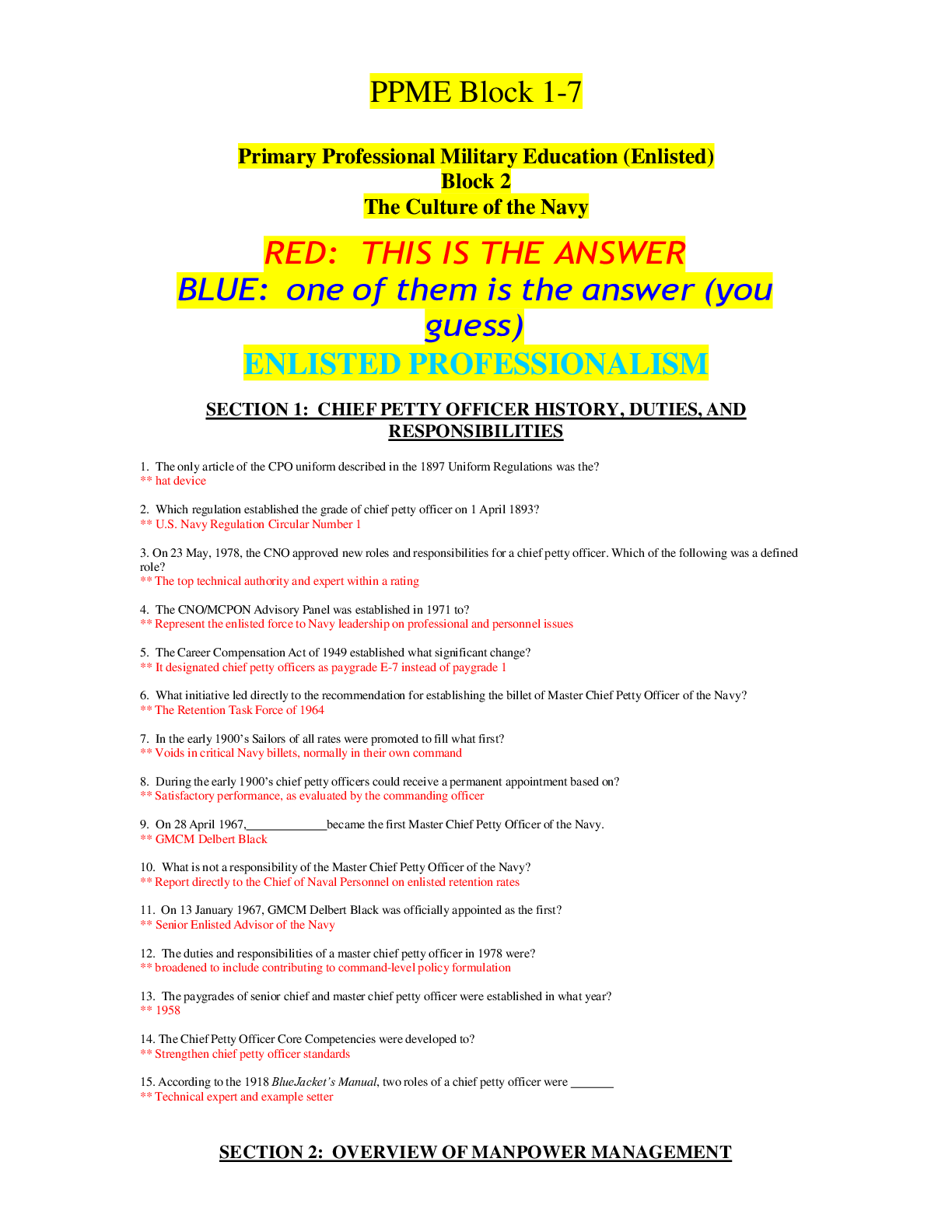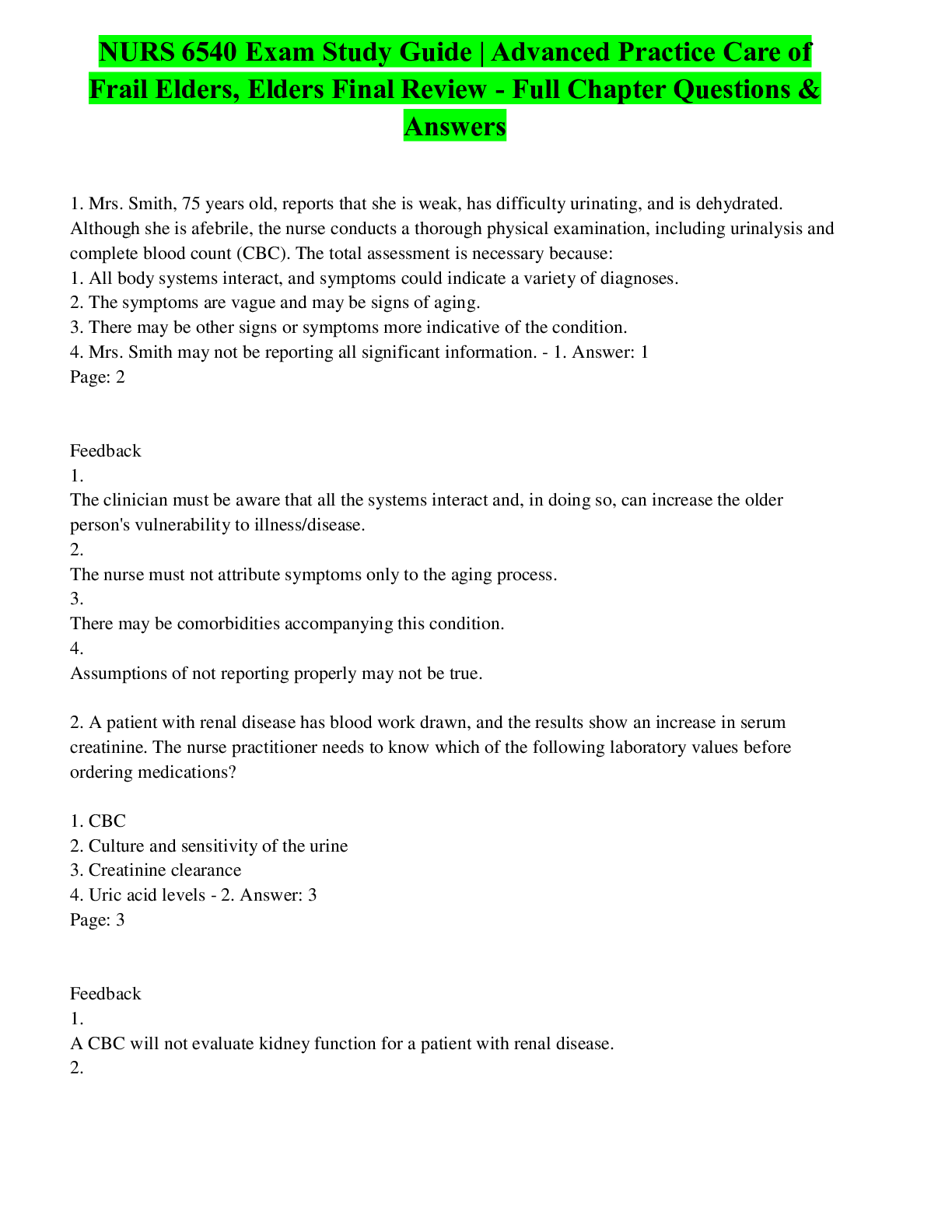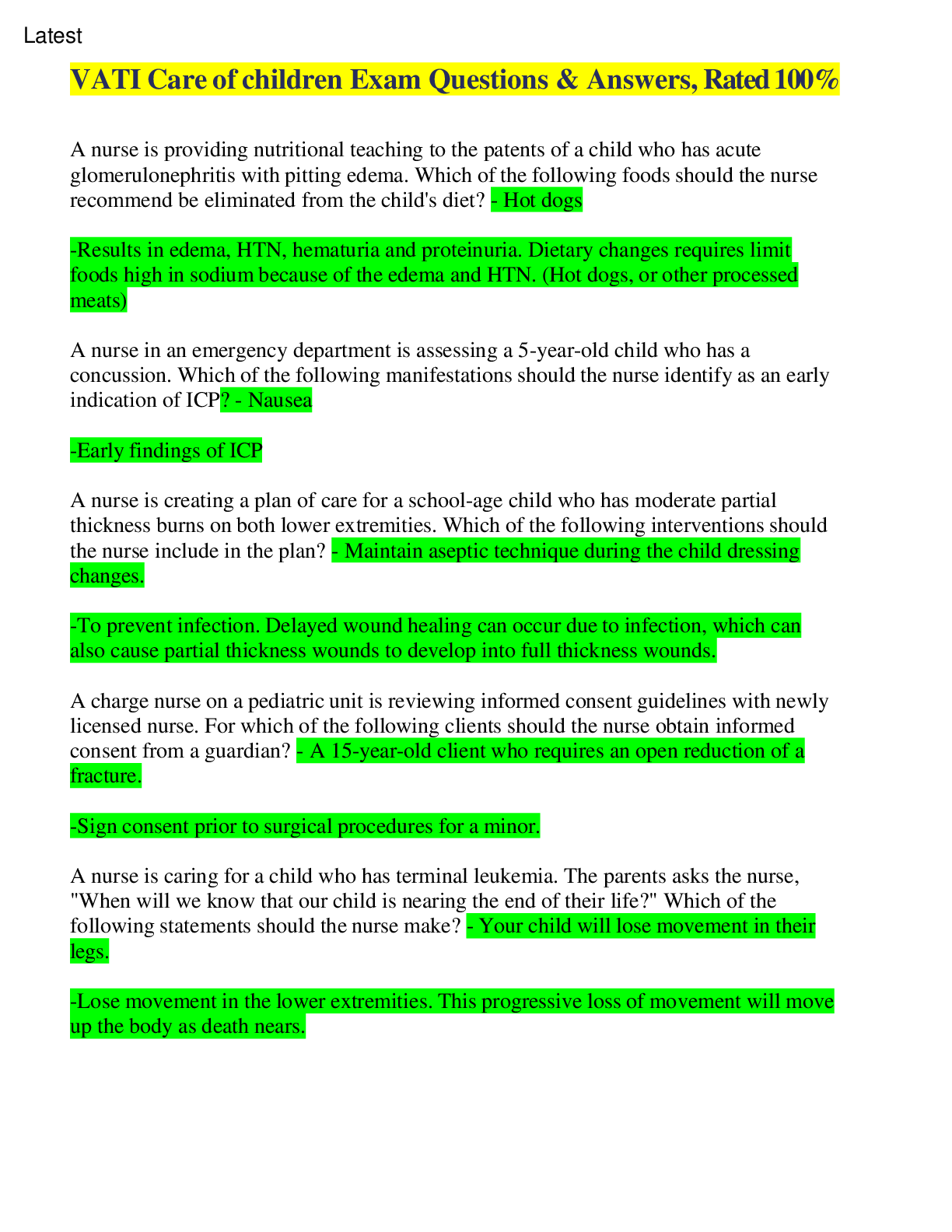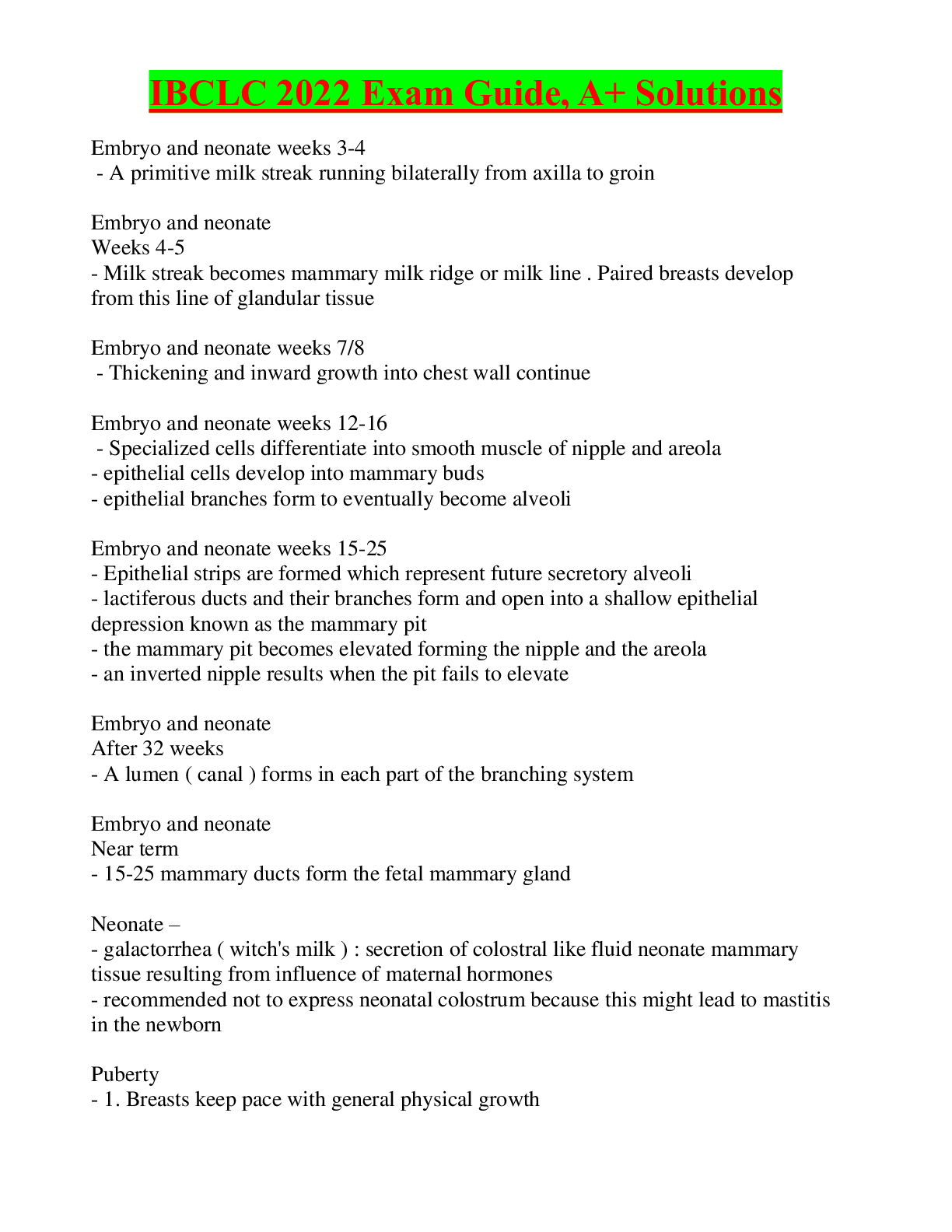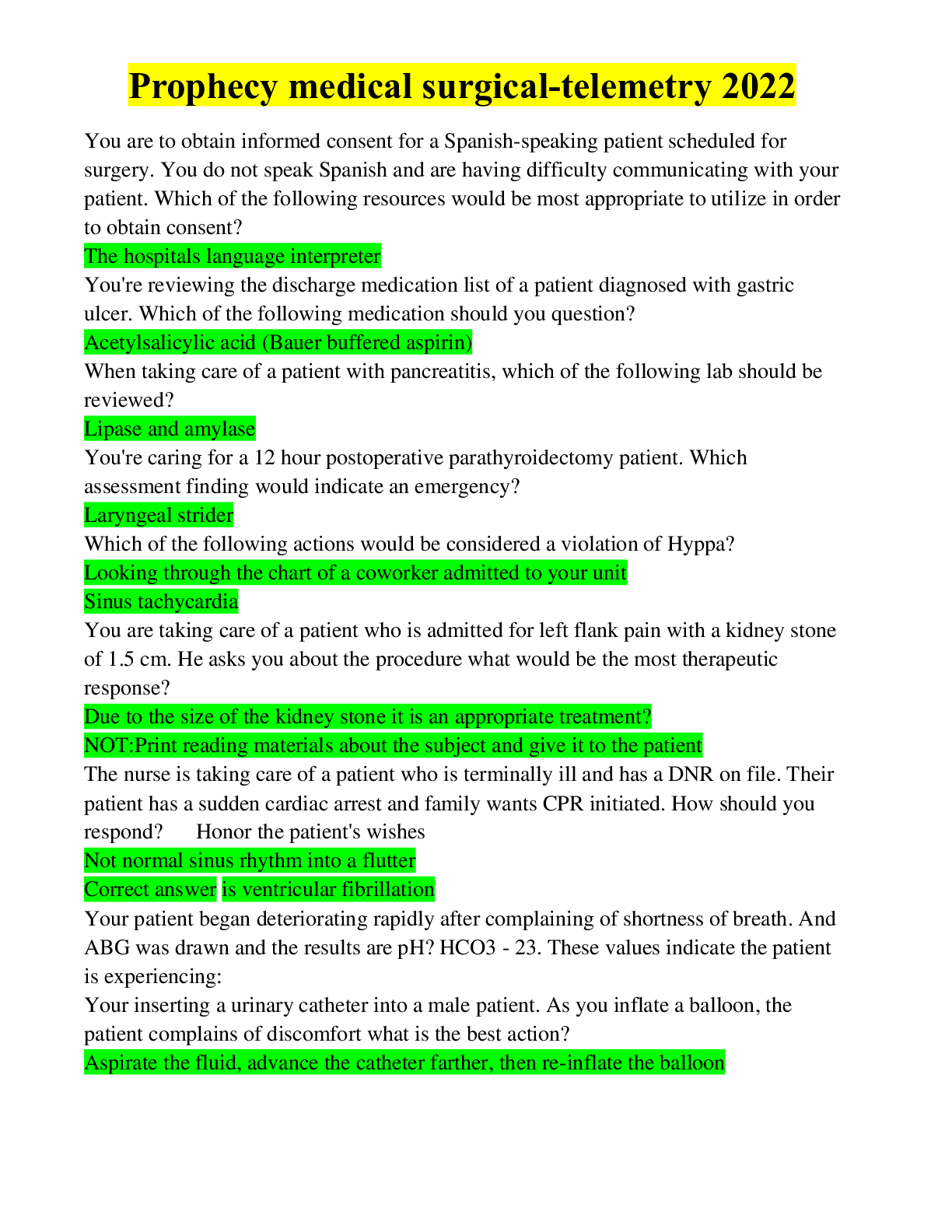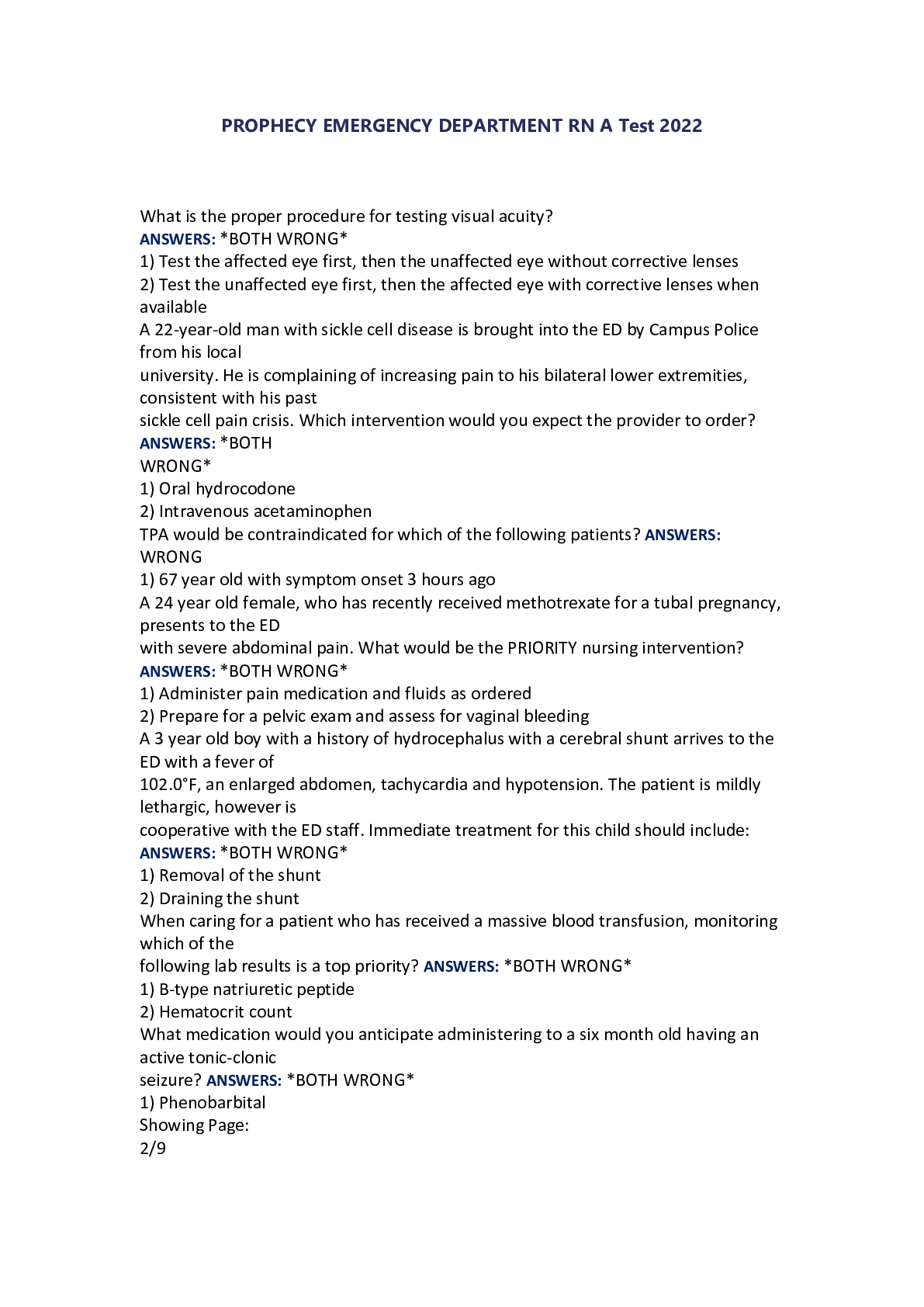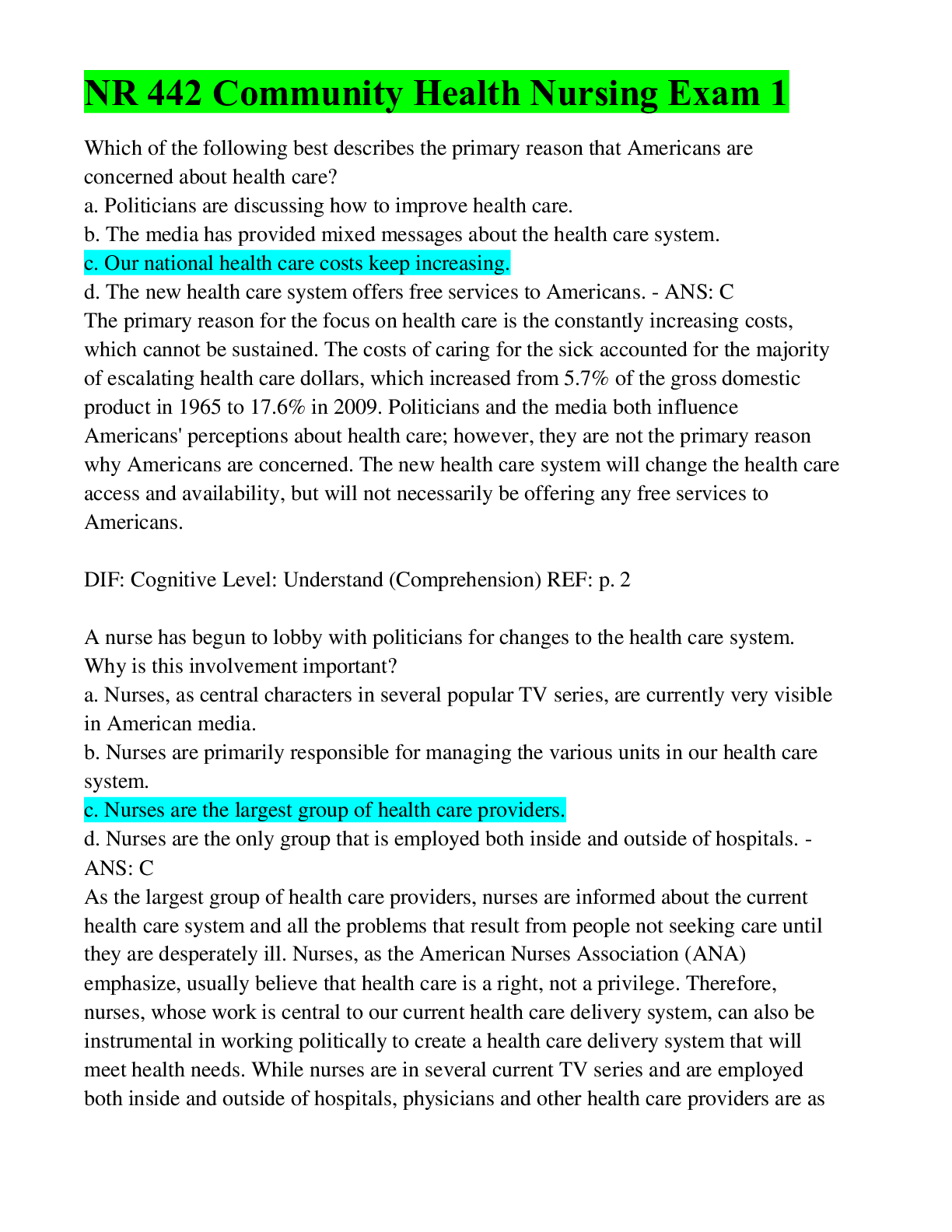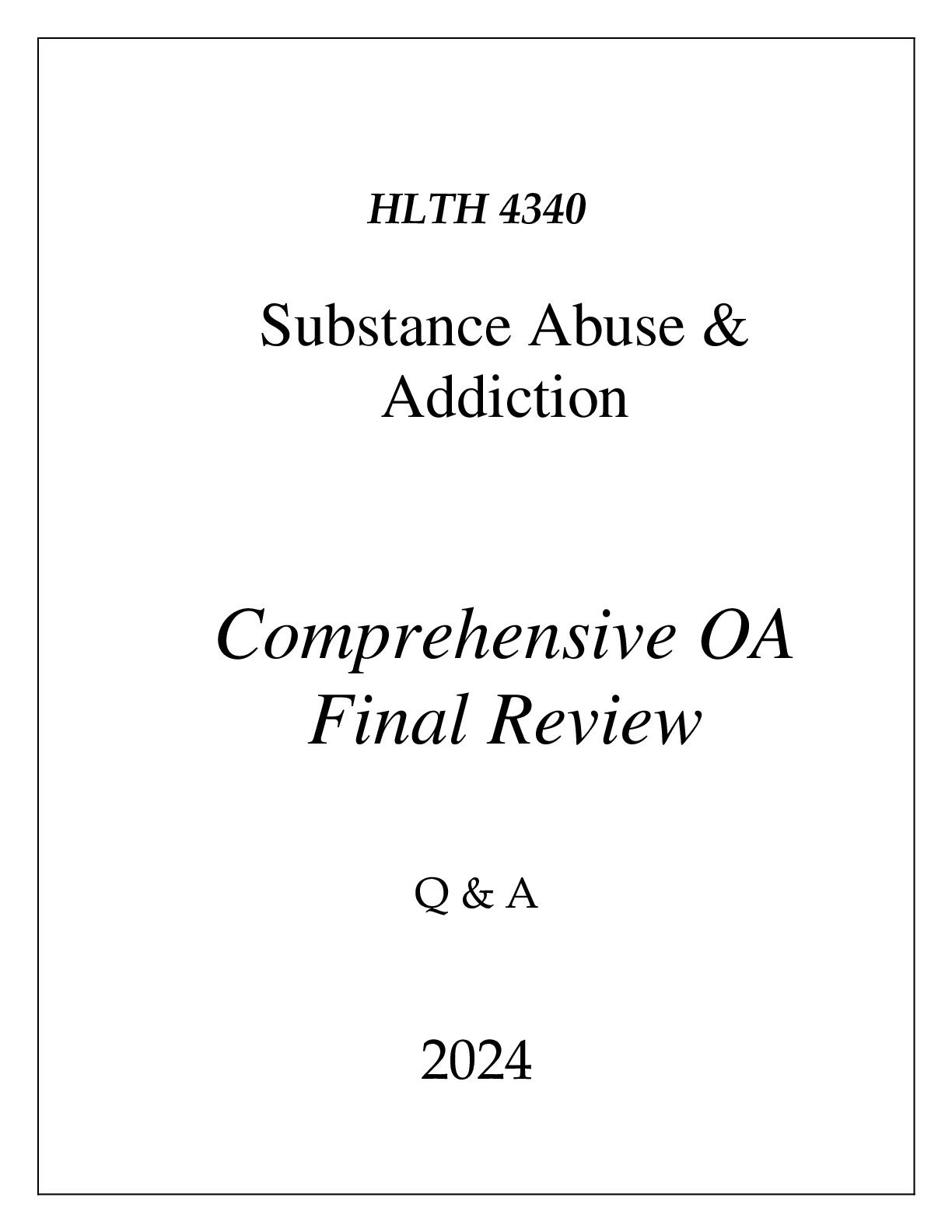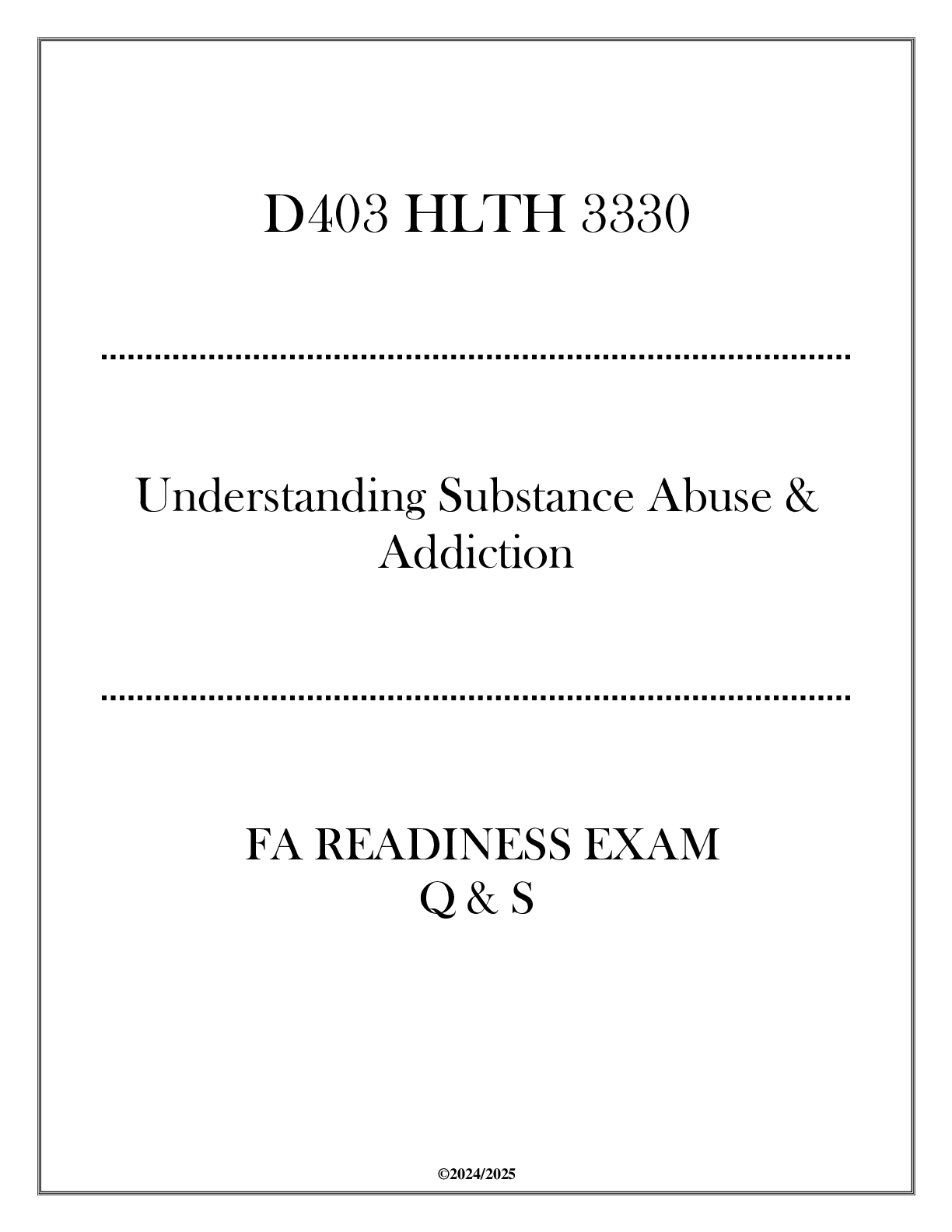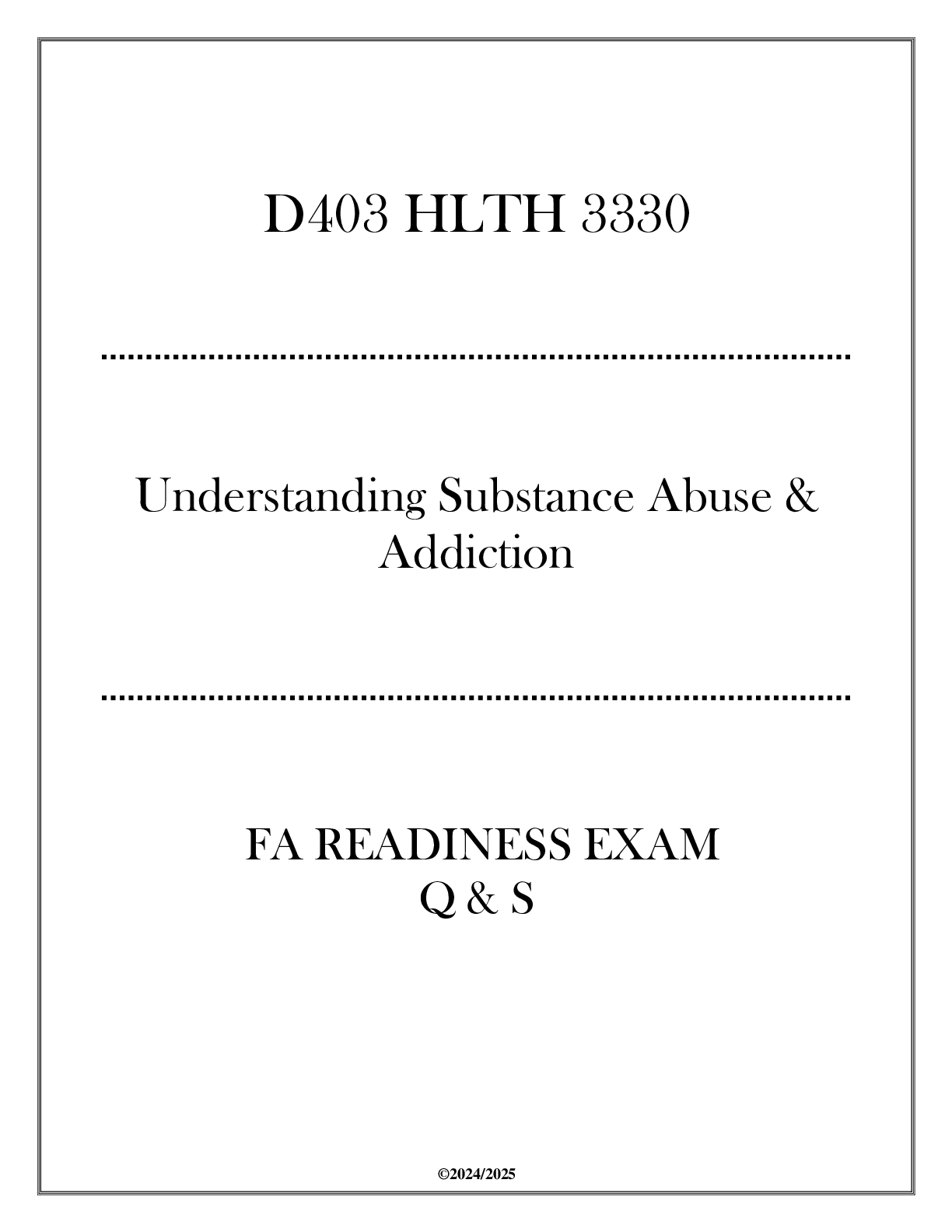*NURSING > EXAM > NEI questions on ADHD, Dementia, Substance Abuse & impulsive Compulsive Disorders. (Test 4) Answered (All)
NEI questions on ADHD, Dementia, Substance Abuse & impulsive Compulsive Disorders. (Test 4) Answered.
Document Content and Description Below
NEI questions on ADHD, Dementia, Substance Abuse & impulsive Compulsive Disorders. (Test 4) Answered.-Peter, a 35-year-old stockbroker, has been advised by his supervisor to come and see you, the comp... any mental health consultant. His supervisor is complaining that he often comes late to appointments, is inappropriately fidgety, interrupts people during meetings, has been offensive towards coworkers, and has been known to party excessively on weeknights. Peter asserts that he is just fine; he has a lot of projects on his mind and is simply standing up for himself when speaking with others. He likes to go out in the evenings to unwind. Recognizing probable ADHD, you interview both the patient and his work buddy, who is a longtime friend. How would you start your questions? A. Compared to his parents, how often does the patient... B. Compared to other people his age, how often does the patient... C. Compared to his childhood, how often does the patient... D. Compared to his children, how often does the patient... The symptoms of ADHD can present differently in patients at different ages. While hyperactivity is a main symptom in children for example, this will frequently translate into internal restlessness in adults. A and D - Incorrect. While ADHD has a strong genetic component, it is not advised to ask him first to compare himself to either his children or his parents. An accurate family history would be beneficial, however. B - Correct. When trying to diagnose this adult patient with ADHD, it is preferable to first ask him to compare his behavior to that of other adults his age, as this will give a better idea of the severity of his symptoms at this time. C - Incorrect. While it is important to obtain a medical history, the patient might not have the best recollection and might not be the best judge of his behaviors as a child. References Stahl SM. Stahl's essential psychopharmacology, fourth edition. New York, NY: Cambridge University Press; 2013. (Chapter 12) According to DSM-5 criteria, what is the maximum age threshold for symptom onset when making a diagnosis of attention deficit hyperactivity disorder (ADHD)? A. 5 B. 7 C. 12 D. 15 C - Correct. In the fifth edition of the Diagnostic and Statistical Manual of Mental Disorders, the maximum age threshold for symptom onset for diagnosing ADHD changed from 7 to 12. Other revisions included the fact that, although symptoms must have been present prior to age 12, there does not have to have been impairment prior to age 12 when diagnosing someone who is older. The symptom count threshold also changed for adults (defined as age 17 and older), with 5 (instead of 6) symptoms required in the inattention and/or hyperactive/impulsive categories. [Show More]
Last updated: 2 years ago
Preview 1 out of 11 pages
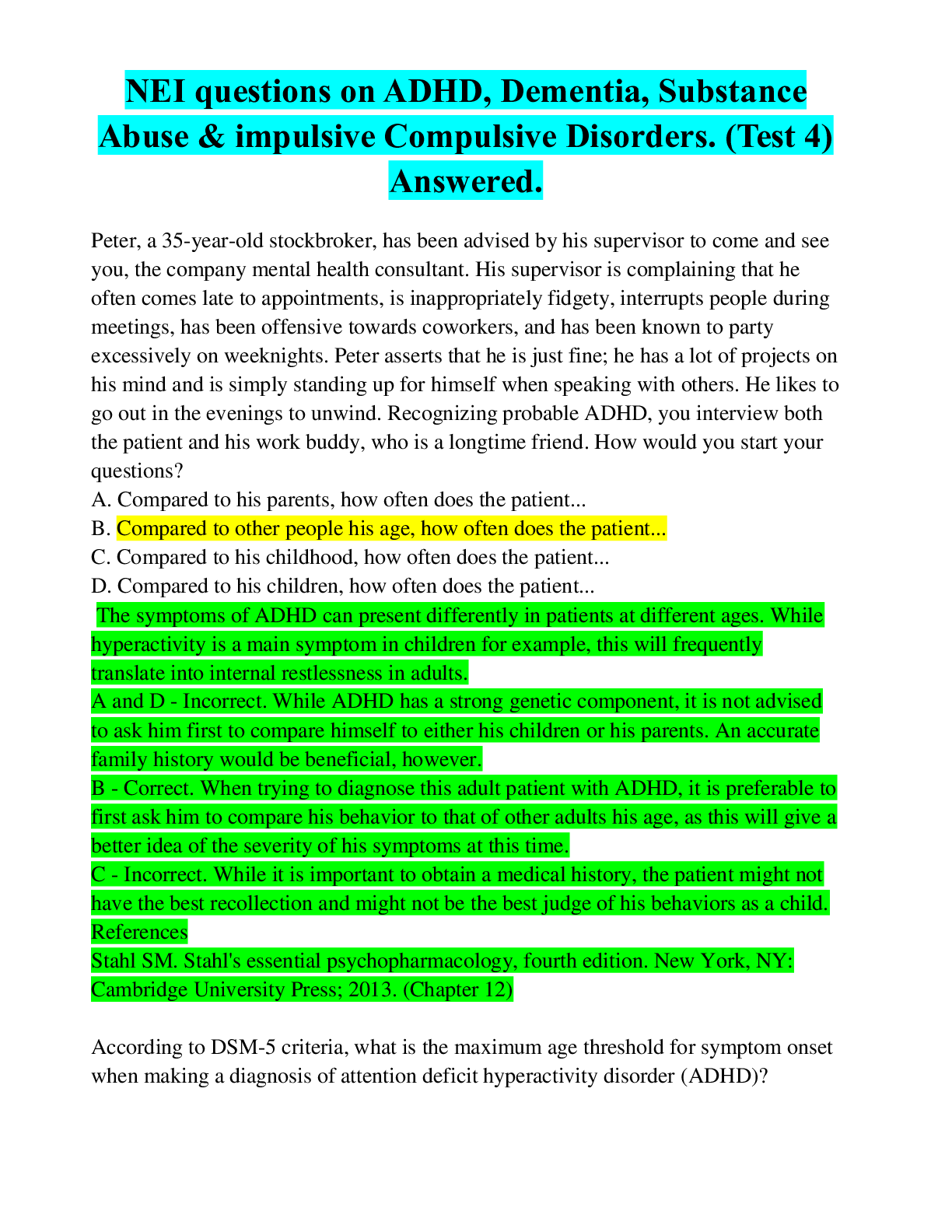
Buy this document to get the full access instantly
Instant Download Access after purchase
Buy NowInstant download
We Accept:

Reviews( 0 )
$14.00
Can't find what you want? Try our AI powered Search
Document information
Connected school, study & course
About the document
Uploaded On
Mar 06, 2022
Number of pages
11
Written in
Additional information
This document has been written for:
Uploaded
Mar 06, 2022
Downloads
0
Views
66


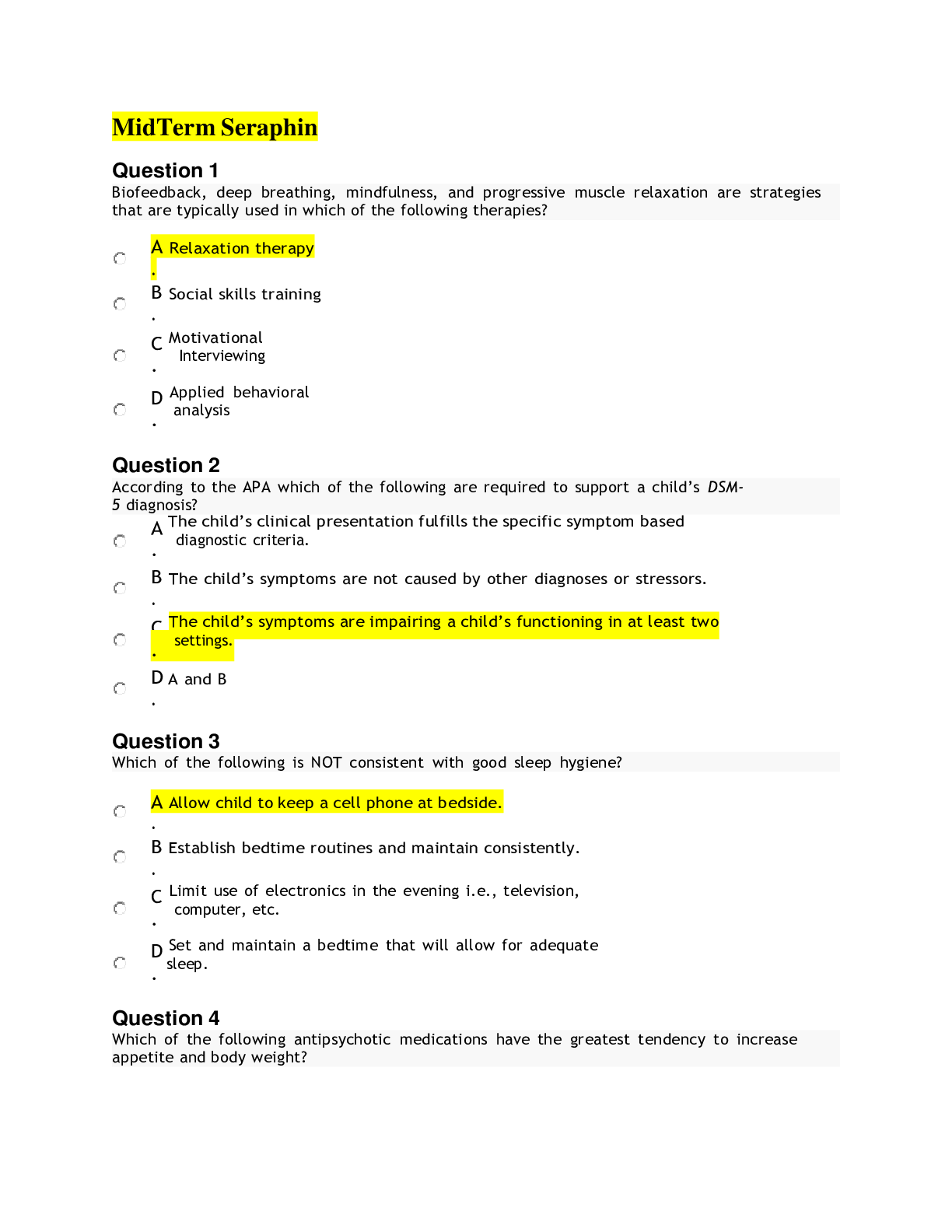
 Pediatrics Practice Exam-Answered.png)
